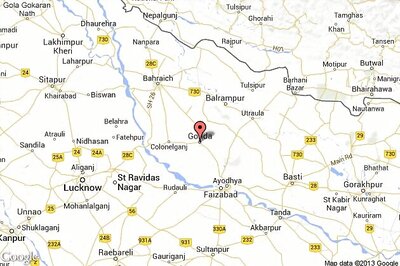
views
The Gujarat High Court on Tuesday directed the Commissioner of Police, Ahmedabad to publish all the rules and orders framed under Sec.33 of the Gujarat Police Act on the Department’s website to make it available and accessible to the public.
The court passed the order in a petition filed against the denial of information on the Rules under which the petitioners’ application seeking permission to stage a peaceful protest against the Citizenship Amendment Act (CAA) on December 29, 2019 was denied by the Police.
When the petitioner, through a letter to the Commissioner of Police, Ahmedabad, asked under which rules or regulations she had been denied permission to protest, the information was denied by the department.
Consequently, the petitioner moved the high court seeking publication and online access to all rules, regulations, instructions, manuals and records held by the office of the Commissioner of Police, Ahmedabad or under its control or used by its employees for discharging its functions.
However, the Assistant Government Pleader opposed the petition objecting to its maintainability. He mainly argued that instead of pursuing the remedy of appeal available under the Right to Information Act, the petitioner adopted a clever approach and resorted to the high court directly.
The AGP also contended that the Special Branch of the Commissioner of Police is a Security & Intelligence Organization of the State Government which is one of the exempted 11 organizations under Sec.24(4) of the Right to Information Act which entitles the government not to give or part with information.
The bench of Biren Vaishnav observed that assemblies and processions can be regulated by rules which can be framed under the provisions of Sec.33(1) (o) of the Gujarat Police Act, 1951 and sub-section 6 of Sec.33 mandates publication of such rules or orders.
Further, referring to the preamble of the Right to Information Act, the court said that the Constitution of India has established a democratic republic. “Democracy requires an informed citizenry and transparency of information which are vital to its functioning and also to contain corruption and to hold governments and their instrumentalities accountable to the governed,” it observed.
The HC held that the information pertaining to rules, acts, regulations and manuals withheld on the website of the Police Department as being “departmental use only”, when read in the context of Sec.33(6) of the Act would be contrary to the mandate as provided under the Section which mandates publication of the rules.
The court agreed with the submission of the petitioner’s counsel who had quoted Lon L Fuller for stating that “there can be no greater legal monstrosity than a secret statute”.
Therefore, in light of the fundamental rights guaranteed to the petitioner under Articles 19 and 21 of the Constitution, the court held the petitioner was entitled to the information she sought from Police Department.
“The petitioner is entitled to know the rules framed under Sec.33 of the Gujarat Police Act, so as to know the reasons by which the petitioner was denied permission as in the absence of such knowledge, the petitioner will be handicapped in challenging such permission which will be a direct infringement of her fundamental right and a statutory right to know and access the law of the land which he violated,” the court said.
Read all the Latest India News here



















Comments
0 comment